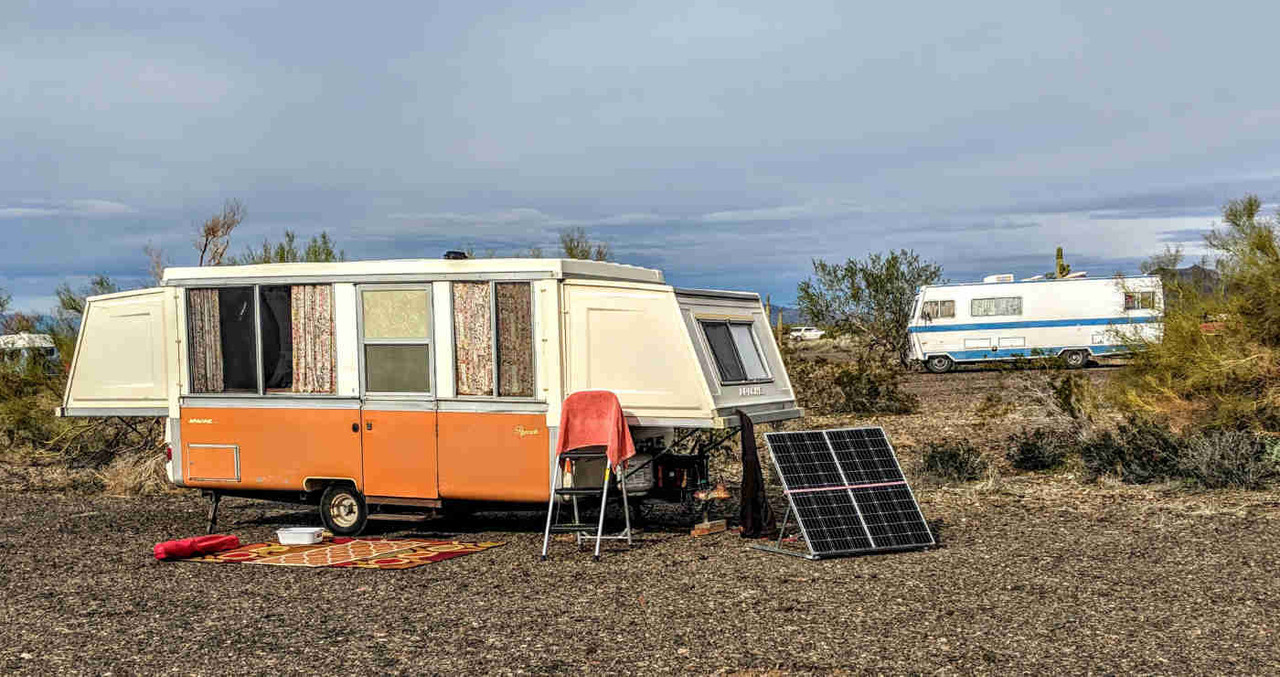The Complete Guide to Getting Started with Solar in Mobile Homes– Are Panels Worth It?
Many people make the mistake of jumping into buying solar panels for their RV before doing their homework.They buy a panel or two online and install it without really considering their total power usage, then become frustrated because the system is not performing up to their expectations. Doing this is like purchasing an air conditioning or heating system for your home without assessing the square footage, number of rooms, number of levels, and the typical temperature fluctuations where you live. A solar powered system is not one size fits all.
Are panels worth it? It all depends on how many electrical appliances you want to run, how often you want to be off-grid and whether you want to invest in a solar panel system or continue to pay full-price for full hook-ups at an RV park or campground ($30 - $80 per night). A simple system like ours will get you started for as little as $900.
It’s All About the Watts
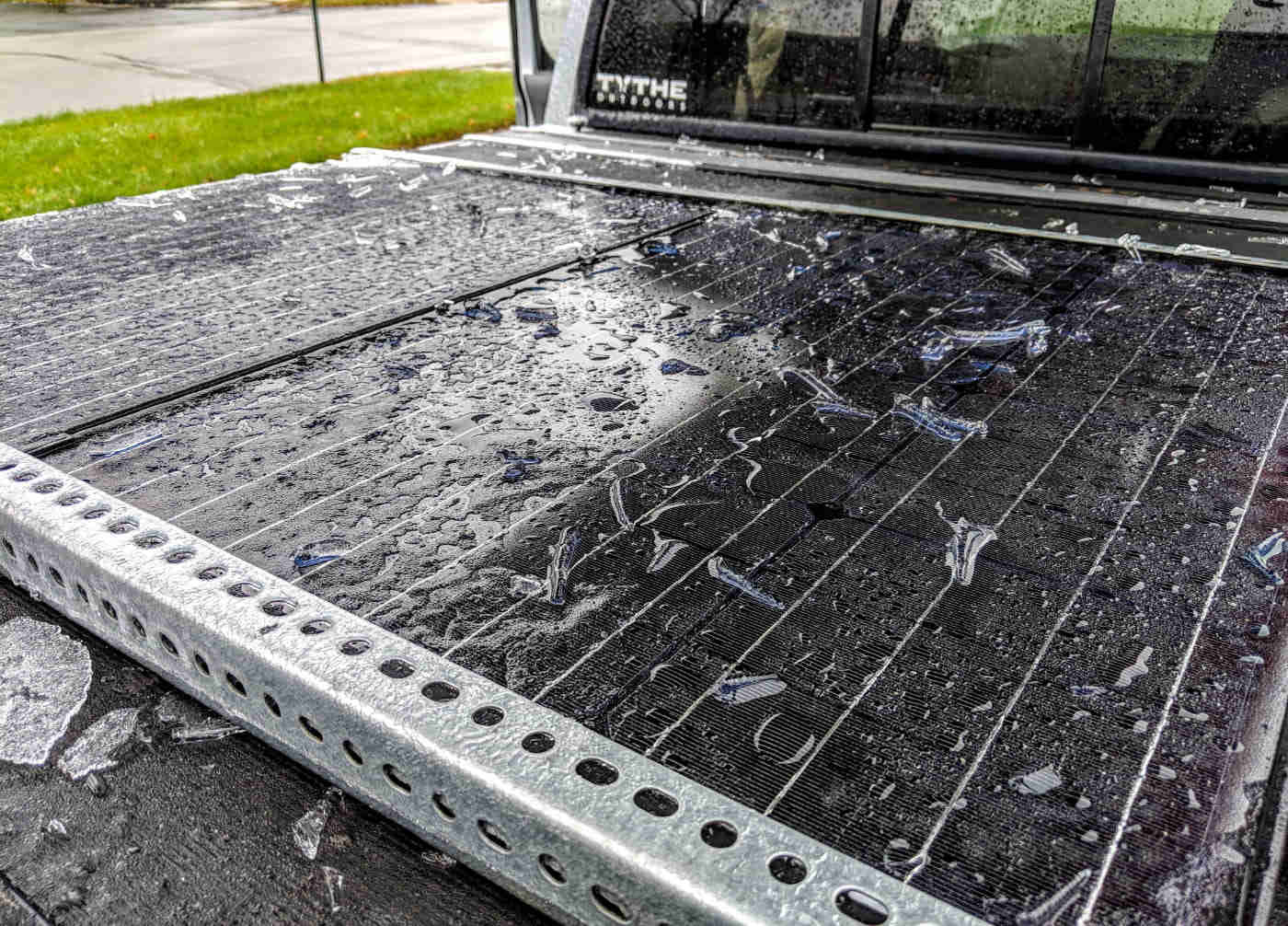
The very first step of deciding on the type & size of each component within your system is to calculate your total watt hours – the magic number that powers your life. Taking the time to determine your total watt hours eliminates the guess work out of customizing a solar powered system and allows you to make educated decisions so that you don’t under, or over, purchase equipment – this can save you time, frustration and money. It will require about 1-2 hours of homework, but the time you put in will be worth it.
In our vintage trailer, Hamlet, we choose to live large by living very small, and keep our energy needs quite low. Rather than relying on the typical energy hogging appliances in many RV’s (though some are getting better/smarter), we use alternative methods to store and cook food so that we don’t need a traditional refrigerator, oven, microwave, toaster, or coffee maker. We can make delicious meals without any electricity! Tonight, homemade Chile Rellenos with black beans and Spanish rice. Last night, Pesto Pasta Primavera with garlic bread! Oh, and homemade brownies with ice cream (grabbed from the store) for dessert of course. The challenge of cooking without electricity is so much fun when you get your head around it.
Ok…think back to some of the basic physics that you were probably introduced to in high school. Get a pen, paper, and a calculator and let’s get started!
Step 1
Find the sticker (or imprint) on the back of each appliance you plan to run and note the number of watts. If for some reason watts is not listed, look for amps and volts and multiply these numbers together. (watts = amps x volts)
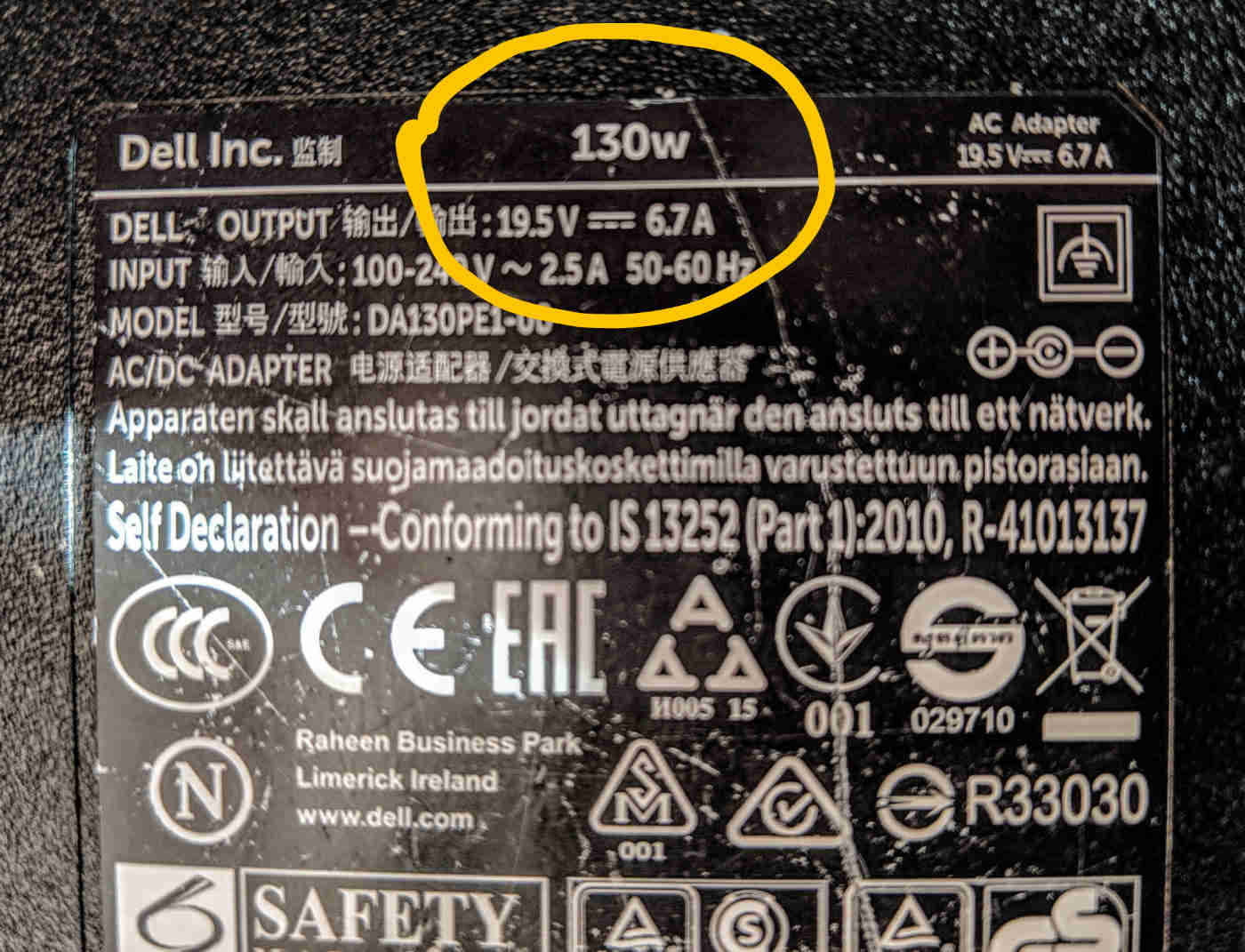
Step 2
Determine the number of hours you typically use each appliance each day. Be realistic but be honest. How many hours of TV do you watch per day? Do you want to run a satellite dish, or stream a movie on your wifi? These numbers are an important part of the equation.
Step 3
For each appliance, multiply the watts times the number of hours per day it will be in use. For example, for a 300-watt coffee maker that you plan to run for 15 minutes each day, multiply 300 x .25 = 75 watt hours. For a 500-watt refrigerator, multiply 500 x 24 hours.
Step 4
Add up all these numbers and you will determine your magic number of daily total watt hours! You can plug this number into a solar calculator to get an idea of the watt hours you'll need in your battery bank, how many / what wattage of panels you'll need, and the appropriate number of amps for a charge controller.
Step 5
If you’ve just realized that your energy needs are huge, take a moment to rethink what you can do differently and reevaluate what you need vs what you want. What electrical items can you live without or use less? Are there some that you can eliminate while boondocking? Here’s a few questions to ask yourself:
- Are you willing to use a kettle and French press to make coffee? It makes better tasting coffee, and the only waste are the coffee grounds, which make great compost.
- Are you willing to spend 5 minutes to heat up your leftovers in a pan on the propane stove instead of 3 minutes in the microwave? Your food will taste better.
- How about watching 2 hours of TV rather than 5? Or read a book instead? Your brain and eyes will thank you.
- Ladies, are you willing to air dry your hair (even a couple times per week) so you don’t need a hair dryer? Or, dry your hair in the campground bathroom when it’s absolutely necessary?
- How about making toast on a griddle over a propane stove rather than relying on an electric toaster? So much tastier…just like at your favorite local diner!
- What about choosing a down comforter or possibly an electric blanket for those cold nights instead of heating your entire RV with a furnace fan? You could save hundreds of watts per hour!
- When boondocking, could you store your fresh food in a cooler rather than running a full residential fridge? There are many new 12-volt coolers which require far less energy to keep your food safe.
Remember: There are many easy ways to reduce your energy needs without reducing your creature comforts. Making these changes will simplify what you need in your RV, eliminate clutter, and reduce the overall cost of your solar powered system significantly. Less to maintain + less money = less stress!
A Bit More Physics to Stretch Your Brain
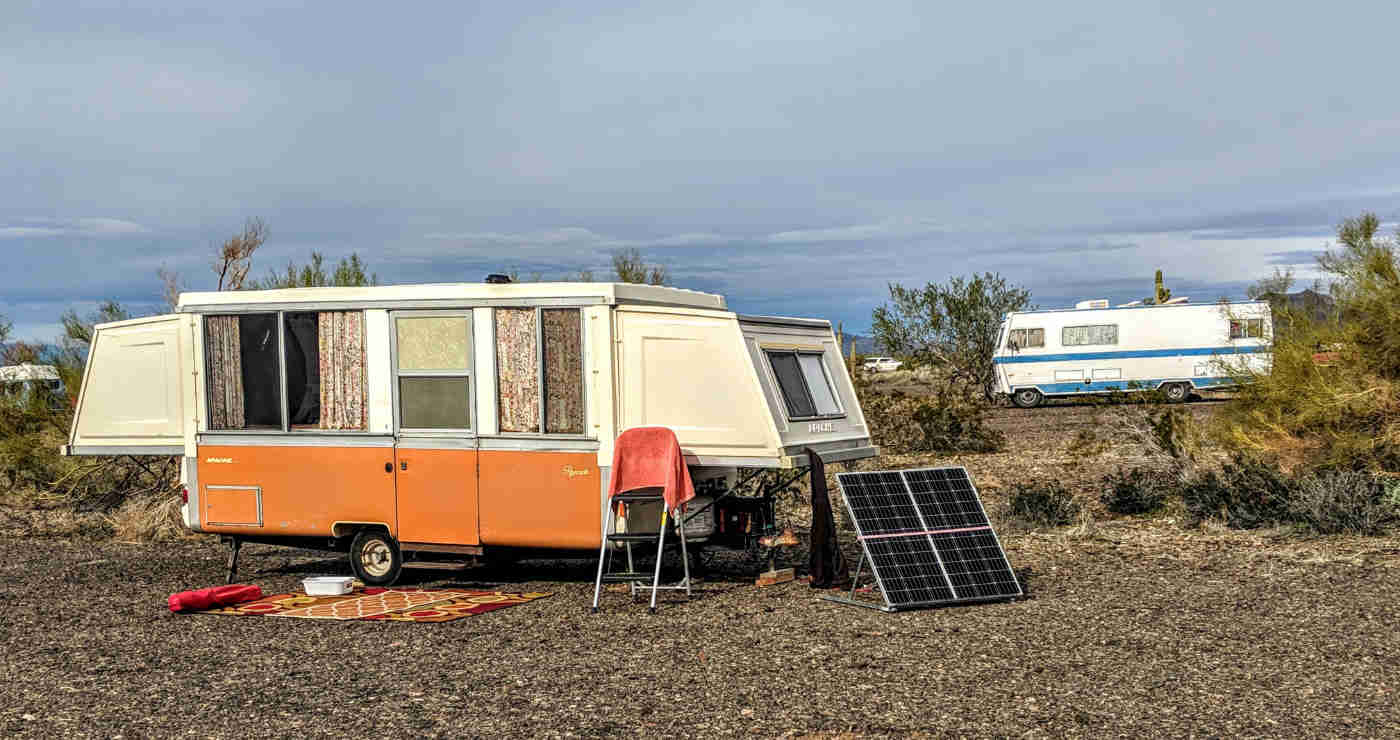
Now that you’ve determined your watt hours, let’s plunge a bit deeper into the physics of electricity as you will come across this terminology when you are deciding on which size/type of components to purchase. Don’t get too hung up on these concepts, but it’s good to understand a bit of it before talking to a sales person or technician.
Watts, Volts, and Amps: Think about these concepts in terms of water running through a shower head.
Amps is like the flow of water in terms of liters per minute coming through the shower head.
Volts is the pressure at which these liters of water are being pushed through the shower head.
Watts is the product of amps x volts, or how satisfying and effective that shower head is at getting you clean! Remember: Anything that heats or cools generally requires a lot of watts. Learn more about the relationship between amps and volts and watts here.
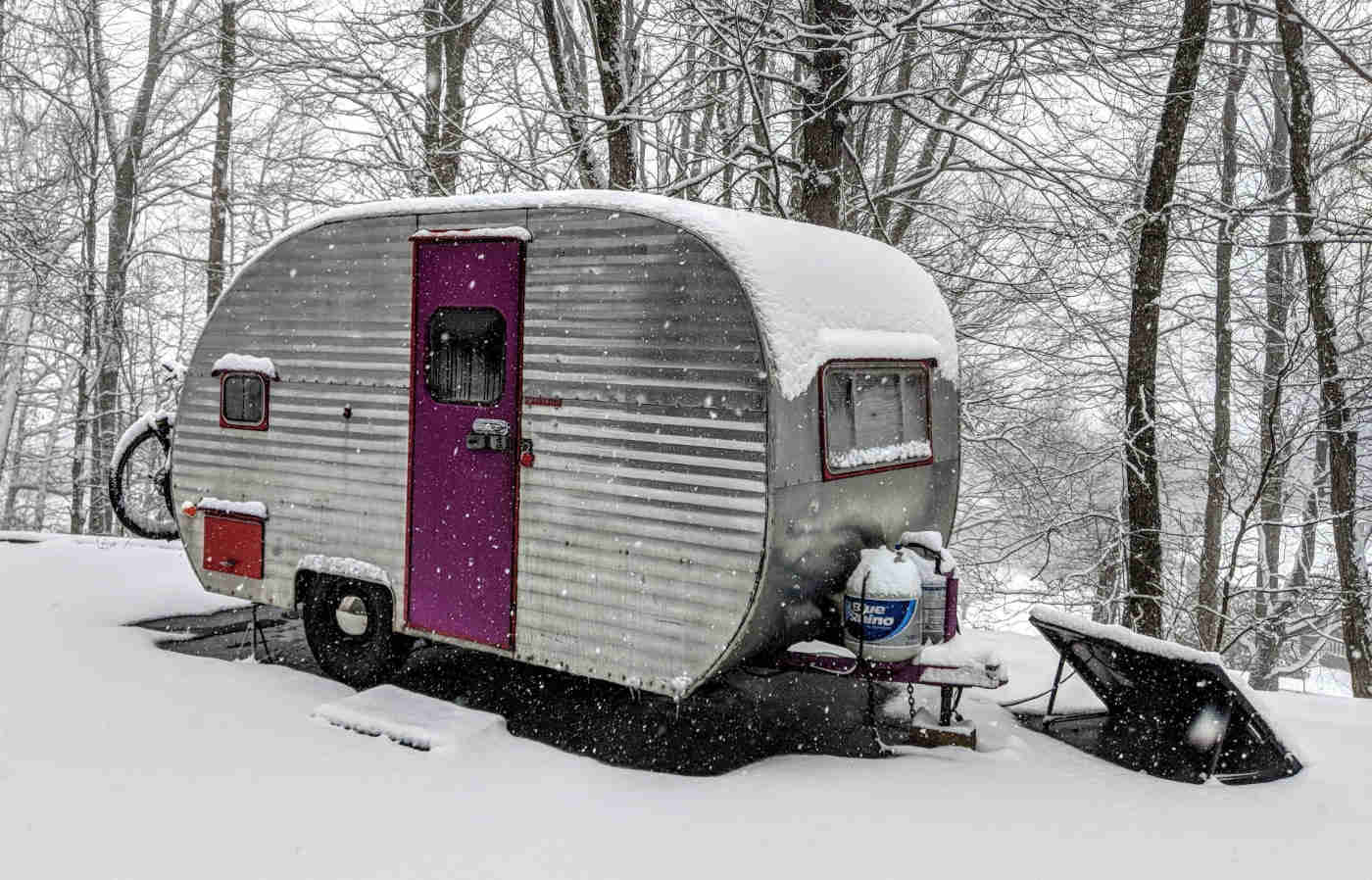
Ready to solar power your life? Get your total watt hours and list of appliances ready and give Renogy a call at 1.800.330.8676 to get a quote on your system. It’s good to call a few different solar panel manufacturers to compare prices, warranties, customer service, etc. Then, determine if you are going to D.I.Y. or hire a professional installer. Or, do some yourself and hire a professional for the trickier parts. Most electricians are familiar with solar installations, just ask around for recommendations in your area. If you live in the southeast, we highly recommend the folks at IONCON of Boone, NC!
If we’ve inspired you to go solar with Renogy, please use our affiliate link and promo code “canlife.” You will get a 10% discount and we will get credit for the sale. It’s win-win! And, as always, contact us directly with any questions. We love to hear from our readers!
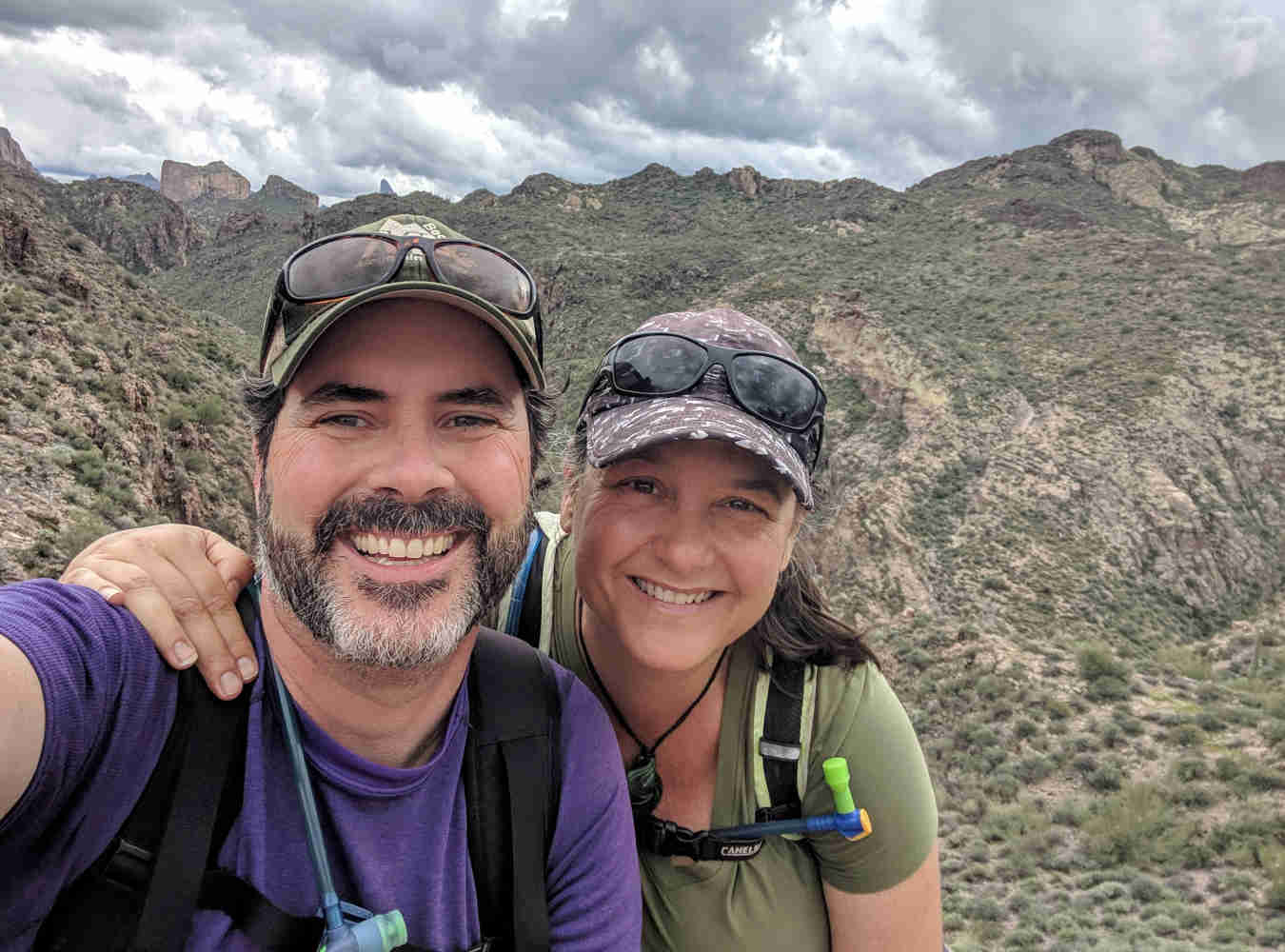
Shari Galiardi & David Hutchison have turned their higher education backgrounds, desire for life-long learning, and thirst for adventure travel into writing, photography, video production, and public speaking tours from coast to coast. Known to their friends as simply Shari & Hutch, you can learn more about their full-time, solar powered adventures on their website at freedominacan.com. Or, follow them on Facebook, Instagram, and YouTube as “Freedom in a Can.”
See other related articles at Renogy:
A Guide to Installing Solar Panels On Van Or RV
Solar Panels 101: A Beginner's Guide
The Ultimate Guide To DIY Off-Grid Solar Systems
Do solar panels increase home value
how efficient are solar panels
How Many Solar Panels Do I Need

